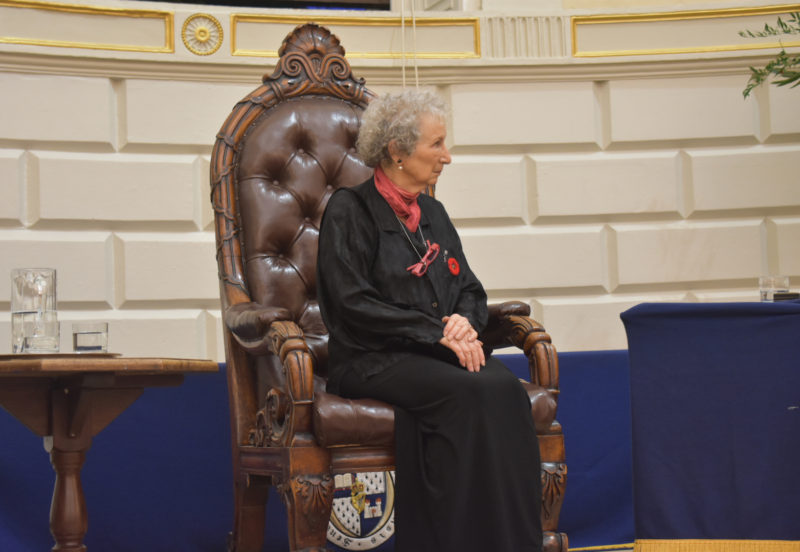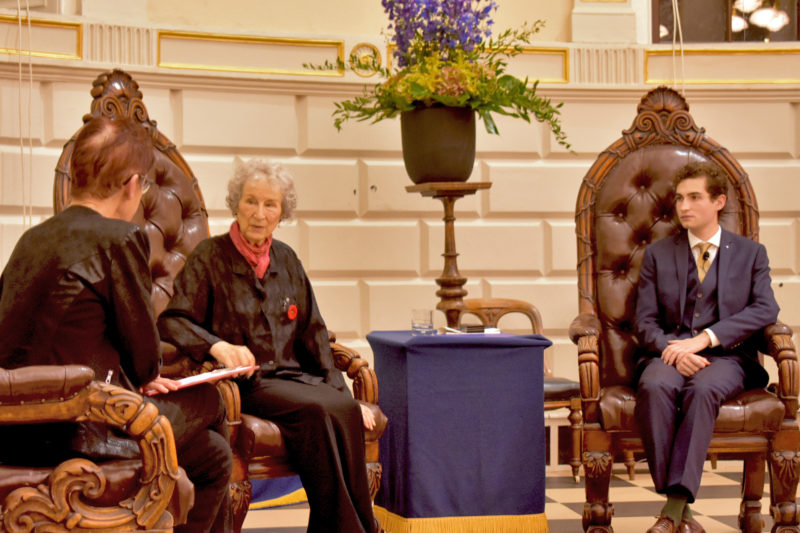
A hum of excited chattering filled the capacious, high-ceilinged exam hall last night as students waited for Margaret Atwood to arrive to speak with the College Historical Society (the Hist). The society honoured Atwood with the Burke Medal for Outstanding Contribution to the Arts. Atwood, who most famously wrote The Handmaid’s Tale and recently wrote The Testaments, has been an enduring literary giant on a global scale for decades.
Following an introduction by the Hist’s auditor, Luke Fehily, Atwood took to the pulpit to impart some knowledge. She began by humorously recounting her previous membership with a college debating society in Toronto, Canada “back in the pre-historic late 1950s – before you were born, before sex was discovered, when there were hardly any female lawyers, politicians or dentists, when there were no cellphones nor any social media at all. Oh, the darkness of those days”.
Atwood acknowledged that the audience would likely be expecting words of wisdom, because of the fallacy that people grow wiser with age. Instead, she offered in her speech what she called “a few substitutes for words of wisdom”.
Atwood, whose books are known for challenging patriarchal codes and mores, told the audience that emotions like anger do not justify some actions, but can prove useful in “motivating resistance to injustice”.
She encouraged the audience not to become despondent in a society that often does not care for justice: “The dogged pursuit of justice takes time, it is hard work, it is often discouraging, but it is the only thing that will change the conditions that made you angry in the first place.”

Atwood discussed power and why writing comes with responsibilities.
Atwood’s second offering of wisdom focused on the pursuit and protection of the truth in today’s society, in an age when it’s often “difficult to come by”. Whistleblowers, Atwood noted, have started to get the attention of the public because it is their tunes “that appear to be true”. She encouraged anyone wanting to pursue a career in writing to take heed of journalists like Jodi Kantor: “Do the research, cross-check everything for accuracy, make sure you’ve got the facts – otherwise your risk going down in flames.”
Atwood turned her attention to power, and the role of language in it. She said that “electricity can light your lamp or it can burn down your house, and so it is with human power”. She advised the audience to use their power well – using language truthfully and correctly. It seems likely that these concluding words reminded the audience of The Handmaid’s Tale, where the truth of living in a patriarchal society was brought to the forefront, and has remained there in academic and political discourse until present day.






